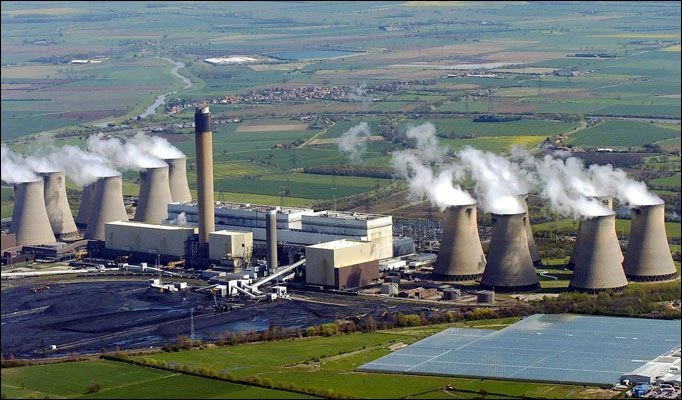
Partner Article
Power sector PR needs a little more energy
It might not be the sexiest sector to work in, but for marketing and communications professionals there are fewer more challenging industries right now than energy.
The biggest challenge over the next year or so is explaining to the business community, and to consumers, why we’re facing a new energy crisis, and what needs to be done to prevent it.
We haven’t seen regular power blackouts in Britain since the dark days of the 1970s, but key commentators have been warning for the past couple of years that we could be on the verge of a return to those “winters of discontent”.
The first issue facing us is that new regulations, arising from a European Directive (The Large Combustion Plant Directive, or LCPD), mean a large number of existing coal and oil-fired power stations are due to close over the next 12 months.
In addition, a number of ageing nuclear stations are due to shut down between now and 2020, to be replaced by new facilities. However, many of those will not come on stream before 2030.
Renewable energy? As yet, the various renewable energy sources available to us aren’t of sufficient scale to make much of an impact.
Fracking? Political potatoes don’t get much hotter than that one. It’s hard to see much progress being made there in the next few years.
It doesn’t take a genius to work out, therefore, that the UK will have a potential “energy gap” of power generation capacity that needs to be addressed.
How big is that gap? Well, the UK is likely to require 15-25GW of new power generation capacity by 2020. When you work out that one gigawatt can power 750,000 homes, that’s potentially almost 19 million homes without power. And energy experts are warning that demand could exceed supply by as early as 2016.
So if we can’t produce the extra power needed, the only option is to cut our usage. National Grid is offering a cash carrot to businesses that reduce their energy use during peak times in winter, and Ofgem has predicted “tighter” electricity supplies from this winter onwards. The colder and harsher our winters, the more precarious it will be.
It’s a tricky balancing act for both National Grid and the regulator. They don’t want to be accused of scaremongering, but by the same token they need to inform and educate.
Of course, PR and comms professionals across the energy industry are used to dealing with a largely negative media.
Whether it’s issues over nuclear power, fracking, the UK’s renewables target (which journalists are convinced the Government will miss), ‘eyesore’ windfarms, rising prices or soaring profits of the energy companies, the media agenda tends to be driven by opponents rather than proponents.
But there are some positive stories the industry can promote.
For example, a number of new gas-fired power stations are being built or are planned – including one at Trafford, Manchester – which could become more financially attractive if shale gas extraction arrives in the UK. But shale means fracking. And fracking means protests.
Similarly, liquid natural gas (LNG) becomes a more viable alternative to oil or piped gas as North Sea gas supplies decline. The problem for LNG promoters is that Britain is still heavily reliant on imports, which makes it a relatively expensive option.
Probably the only part of the energy sector that gets positive attention is EfW – Energy from Waste. Turning waste into energy is seen by the Government as a key component of its renewable energy commitments.
Before 2016, 24 new thermal plants are due to be built – with seven coming online in 2014 – and there will continue to be huge growth in anaerobic digestion (AD) plants across the UK. Just don’t mention the word “incinerator”!
Come the General Election, energy policy will be an interesting talking point for the media.
The Tories, Labour and Lib-Dems have different approaches to how the UK’s energy needs should be met, and how the energy sector should be controlled.
The key challenge for the parties – and for the industry in general – will be to convince both the business community and consumers that power is in the right hands.
By Jenny Wilkinson, senior consultant, Aberfield Communications
This was posted in Bdaily's Members' News section by Aberfield Communications .
Enjoy the read? Get Bdaily delivered.
Sign up to receive our popular Yorkshire & The Humber morning email for free.








 Raising the bar to boost North East growth
Raising the bar to boost North East growth
 Navigating the messy middle of business growth
Navigating the messy middle of business growth
 We must make it easier to hire young people
We must make it easier to hire young people
 Why community-based care is key to NHS' future
Why community-based care is key to NHS' future
 Culture, confidence and creativity in the North East
Culture, confidence and creativity in the North East
 Putting in the groundwork to boost skills
Putting in the groundwork to boost skills
 £100,000 milestone drives forward STEM work
£100,000 milestone drives forward STEM work
 Restoring confidence for the economic road ahead
Restoring confidence for the economic road ahead
 Ready to scale? Buy-and-build offers opportunity
Ready to scale? Buy-and-build offers opportunity
 When will our regional economy grow?
When will our regional economy grow?
 Creating a thriving North East construction sector
Creating a thriving North East construction sector
 Why investors are still backing the North East
Why investors are still backing the North East